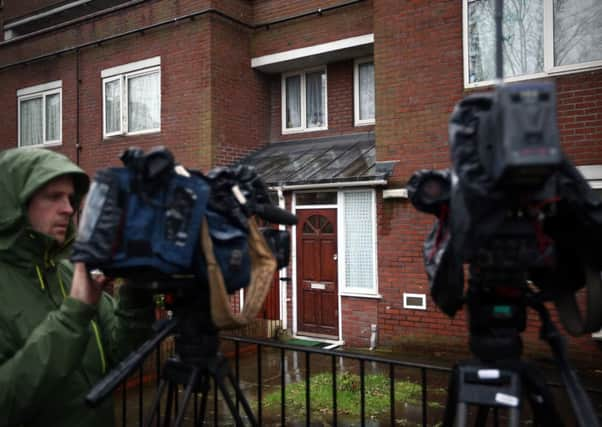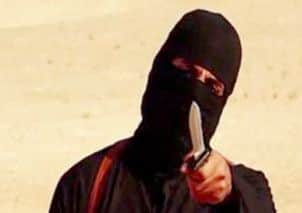‘Jihadi John’ identified as ‘London IT graduate’


Mohammed Emwazi moved to Britain from Kuwait at the age of six and was known as a polite young Muslim until he was radicalised and became a cold-blooded murderer.
Bethany Haines, daughter of one of his British victims, David Haines, from Perth, said the families of his victims would “feel closure and relief once there’s a bullet between his eyes”.
Advertisement
Hide AdAdvertisement
Hide AdMr Haines was beheaded last September after being taken hostage in Syria in March 2013 while working for international relief agency Acted.


Emwazi, 26, is thought to have joined Islamic State (IS) after becoming frustrated by repeated questioning by the British security services.
He supposedly felt “incensed” because the Security Service, MI5, had refused to let him move to Kuwait to get married and start a new job, so he went to Syria for revenge.
Emwazi became the face of IS and one of the world’s most-wanted terrorists last August after a video film showed him beheading the US journalist James Foley.
He wore a black robe and a black balaclava which revealed only his eyes. In a British accent, he warned of more executions to come.
Emwazi has since appeared in other grisly IS films in which he executed more Americans, Mr Haines and Alan Henning, from Salford, and taunted Prime Minister David Cameron.
His identity is thought to have been known to MI5 since last summer but was not made public because the priority was finding him.
He was given the name “Jihadi John” by a group of his hostages, who described him as part of an IS cell they named the Beatles because of their English accents.
Advertisement
Hide AdAdvertisement
Hide AdLast month, Emwazi appeared in a video with the Japanese hostages Haruna Yukawa and Kenji Goto, shortly before they were killed.
According to the Muslim-led human rights group Cage, he is a British citizen who was born in Kuwait in 1988 before moving to the UK. He grew up in West London and occasionally prayed at a mosque in Greenwich.
The Washington Post quoted those who knew him as saying he wore stylish clothes but was still a devout Muslim who did not make eye contact with women.
At his family home, a two-storey council house in Queen’s Park, neighbours yesterday described Emwazi’s family as “strange and unfriendly”.
Asim Qureshi, a director with Cage – which claims Emwazi had been interrogated by MI5 and subjected to security agency harassment – said he had come to know Emwazi – whom he called a “beautiful young man” – before he fled for Syria.
Mr Qureshi said the UK’s security policy had “only increased alienation” since the 9/11 terrorist attacks. He cited similarities between Emwazi’s case and that of Michael Adebolajo, who murdered soldier Lee Rigby in Woolwich in 2013.
Earlier, Sir Menzies Campbell, a member of Westminster’s intelligence and security committee (ISC), said it was likely to seek answers from the security services after May’s general election on what they knew about Jihadi John.
He said: “I think it will be for the committee formed in the next parliament to ask for a report and then, if it thinks it necessary, to take evidence from the relevant security services.”
Advertisement
Hide AdAdvertisement
Hide AdSir Menzies said the ISC had not been informed of Jihadi John’s true identity, and would not have expected to be.
“I’m totally unaware of that and I wouldn’t have expected it to be the case, because although the committee is entitled to some evidence about operational activities, that is by and large after these operations have been concluded,” he said.
He said the case appeared to have “echoes” of the murder of Lee Rigby. “One of the difficulties here is you can’t keep an eye on everyone all the time, and, as the committee found in the case of Lee Rigby, there’s no doubt that from time to time the security services have got to prioritise those upon whom they are conducting surveillance,” he said.
SEE ALSO
FOLLOW US
SCOTSMAN TABLET AND MOBILE APPS